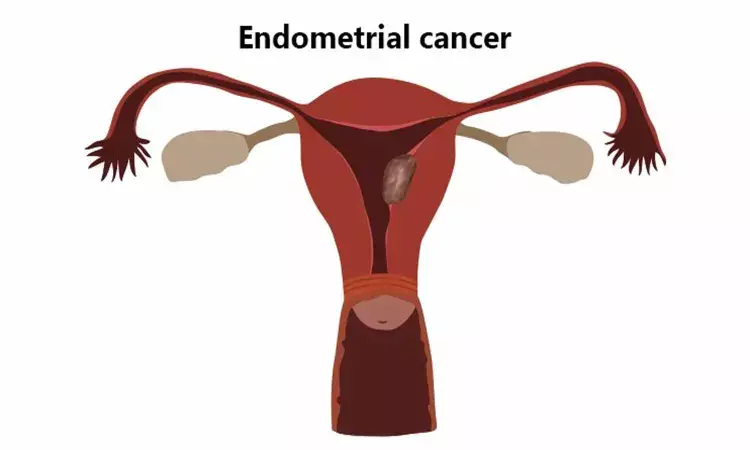- Home
- Medical news & Guidelines
- Anesthesiology
- Cardiology and CTVS
- Critical Care
- Dentistry
- Dermatology
- Diabetes and Endocrinology
- ENT
- Gastroenterology
- Medicine
- Nephrology
- Neurology
- Obstretics-Gynaecology
- Oncology
- Ophthalmology
- Orthopaedics
- Pediatrics-Neonatology
- Psychiatry
- Pulmonology
- Radiology
- Surgery
- Urology
- Laboratory Medicine
- Diet
- Nursing
- Paramedical
- Physiotherapy
- Health news
- Fact Check
- Bone Health Fact Check
- Brain Health Fact Check
- Cancer Related Fact Check
- Child Care Fact Check
- Dental and oral health fact check
- Diabetes and metabolic health fact check
- Diet and Nutrition Fact Check
- Eye and ENT Care Fact Check
- Fitness fact check
- Gut health fact check
- Heart health fact check
- Kidney health fact check
- Medical education fact check
- Men's health fact check
- Respiratory fact check
- Skin and hair care fact check
- Vaccine and Immunization fact check
- Women's health fact check
- AYUSH
- State News
- Andaman and Nicobar Islands
- Andhra Pradesh
- Arunachal Pradesh
- Assam
- Bihar
- Chandigarh
- Chattisgarh
- Dadra and Nagar Haveli
- Daman and Diu
- Delhi
- Goa
- Gujarat
- Haryana
- Himachal Pradesh
- Jammu & Kashmir
- Jharkhand
- Karnataka
- Kerala
- Ladakh
- Lakshadweep
- Madhya Pradesh
- Maharashtra
- Manipur
- Meghalaya
- Mizoram
- Nagaland
- Odisha
- Puducherry
- Punjab
- Rajasthan
- Sikkim
- Tamil Nadu
- Telangana
- Tripura
- Uttar Pradesh
- Uttrakhand
- West Bengal
- Medical Education
- Industry
Researchers discover new non invasive test for detecting endometrial cancer

In the largest study of its kind, researchers have confirmed a new non-invasive test can be used to help with the early detection of endometrial cancer and at-risk patients.
Published in the journal, Cancers, the study signals the next step forward in providing an inexpensive tool for diagnosing patients with endometrial cancer and its common precursor, atypical hyperplasia. When used in a clinical setting, the test could produce almost instantaneous results for women who are at risk of developing or presenting signs of endometrial cancer.
The study was carried out by researchers at the University of Central Lancashire (UCLan), University of Manchester, and the Federal University of Rio Grande do Norte, in collaboration with clinicians from NHS Trusts across Manchester, Lancashire and London.
By using blood spectroscopy, a technique which uses light to determine the molecular make-up of a sample, researchers analysed blood plasma samples from 652 women. In doing this, they generated a characteristic biological "fingerprint", indicative of specific proteins, lipids and other biomolecules that confirmed whether or not the patients were presenting signs of endometrial cancer, or its precursor atypical hyperplasia.
The researchers found that the blood-based infrared spectroscopy test has the potential to detect endometrial cancer with 83% accuracy. This accuracy was highest for type I endometrial cancer, the most common subtype. For atypical hyperplasia, a precancerous condition that affects the endometrial tissue and often leads to cancer, the test had an overall accuracy of 90%.
Endometrial cancer is currently the sixth most common cancer in women, with rising incidence across the world*. Current approaches for the diagnosis and screening of endometrial cancer are invasive, expensive or of moderate diagnostic accuracy, which can limit their clinical utility.
In 2016, the NHS set out the ambitious target that diagnosis should be established within 28 days of attending primary care. This study confirms the potential clinical application of an innovative, non-invasive method which could help to reach this target and identify endometrial cancer early.
When applied in a clinical setting, this test could also help to alleviate pressure on secondary care and ensure that only those at significant risk of disease are identified and referred for further, invasive diagnostic testing.
Dr Maria Paraskevaidi, lead investigator of the study and research associate at the University of Central Lancashire (UCLan) and Imperial College London said: "Despite the rising incidence of endometrial cancer throughout the world, there have been few advances made in improving diagnosis and prognosis of this disease.
"Our research signals an important step forward for patients, clinicians and the research community, and has the potential to be developed into a simple, low-cost and instantaneous test for endometrial cancer in the future."
Dr Pierre Martin-Hirsch, consultant in gynaecological cancer surgery and Research Director at Lancashire Teaching Hospital commented: "This is a potential game changer in the early recognition of endometrial cancer. I am proud of the achievements of this collaborative team."
Professor Emma Crosbie, professor in Gynaecological Oncology at the University of Manchester added: "This research is an exciting development in diagnosing endometrial cancer. Current diagnostic tests rely upon intimate and expensive, labour intensive techniques with moderate accuracy that are unpleasant for women, so we're excited about the prospect of this test being used to improve early diagnosis and fast track women for treatment."
For more details click on the link: DOI: 10.3390/cancers12051256
Hina Zahid Joined Medical Dialogue in 2017 with a passion to work as a Reporter. She coordinates with various national and international journals and association and covers all the stories related to Medical guidelines, Medical Journals, rare medical surgeries as well as all the updates in the medical field. Email: editorial@medicaldialogues.in. Contact no. 011-43720751
Dr Kamal Kant Kohli-MBBS, DTCD- a chest specialist with more than 30 years of practice and a flair for writing clinical articles, Dr Kamal Kant Kohli joined Medical Dialogues as a Chief Editor of Medical News. Besides writing articles, as an editor, he proofreads and verifies all the medical content published on Medical Dialogues including those coming from journals, studies,medical conferences,guidelines etc. Email: drkohli@medicaldialogues.in. Contact no. 011-43720751


